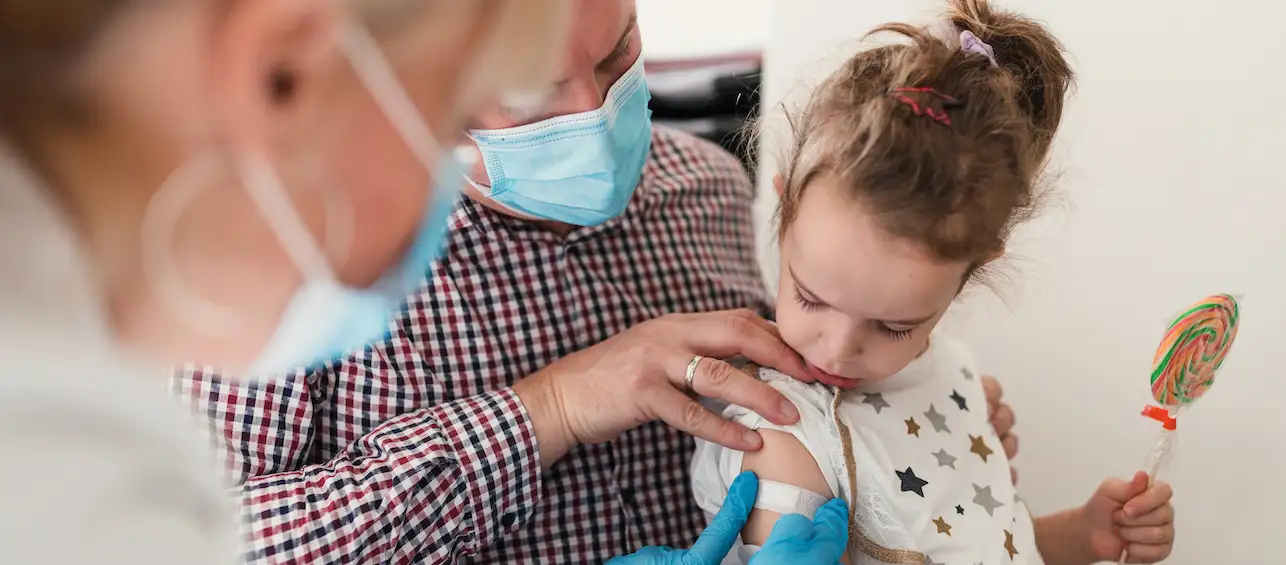The COVID-19 pandemic has had a lasting effect on all of us. It’s upset our daily lives, how we learn and work, our friendships and so much more. Here in our Eating Disorders Program, we noticed its impact early on.
During the lockdown period right after COVID found its way to the United States in March 2020, and in the months immediately following the lockdown period, we noticed a difference in medical hospitalizations for eating disorders. It appeared that we were having a mass influx of kids needing to be hospitalized—far more than previously.
We decided to study what was happening and why. Here’s what we found out.
HOW THE PANDEMIC IS PLAYING A PART IN EATING DISORDERS
The pandemic had a significant impact for nearly one-third of those hospitalized for an eating disorder.
We started by examining the number of patients under age 18 admitted to Cincinnati Children’s for medical complications of an eating disorder during the COVID lockdown period as compared to before. What we found was that roughly one-third of all kids hospitalized after the start of COVID reported that the pandemic played a significant role in the development of their eating disorder. From a research perspective, we can’t say the pandemic caused the eating disorder, but going through the data, we can see that the pandemic had something to do with it.
Eating disorders develop due to a combination of biology and environment. Typically a number of factors come together for an eating disorder to develop. But biology plays a big part in that. Some people are just “wired” so that they’re more likely to develop an eating disorder. For example, with anorexia nervosa, the condition for which we see most hospital admissions, between 50-80 percent of the reason why someone develops the condition is due to biological factors that are out of their control, like genetics and personality. Combining that biological predisposition with daily stressors can lead to the unintentional development of the eating disorder. The pandemic acted as one environmental stressor for kids who were already at risk for developing an eating disorder.
Being pulled from their day-to-day routines has been incredibly hard for some kids.
Eating disorders can affect anyone. But there are certain personality characteristics often present in those who develop eating disorders. While this isn’t the case for everyone we see, many of the kids who develop eating disorders have very high expectations for themselves, get good grades, and prefer following rules and routines. With COVID, kids were yanked from their daily routines with little notice or time to transition. For kids who are organized and rule bound, this abrupt change was an incredible challenge. Everything was different: They weren’t in school, they couldn’t see their friends in person, extracurriculars were canceled. No one knew when life would go back to normal.
While our research didn’t look at this correlation in particular, we can make inferences based on what we know about how eating disorders develop. For kids who thrive on routine, the lack of structure and complete change in normalcy brought on by the pandemic may have fed into the start of an eating disorder.
Certain elements of social media factor in.
We already knew that social media has a significant influence on negative body image, eating disorder risk and disordered eating behaviors. Teens see endless images of others living seemingly perfect lives on social media. They can’t help making negative comparisons to themselves that then feed into poor self-esteem.
During the pandemic lockdown, kids were spending even more time on social media since they had a lot of extra time on their hands and were isolated from friends. Social media brought an influx of cautionary messages about the pandemic, like the “Quarantine 15,” which warned kids about an inevitable weight gain during lockdown due to being more sedentary and “stress eating.” For some kids, gaining weight is scary because society tells us that we need to look a certain way to live our best lives. Other kids are scared that gaining weight will make them poorer athletes or cause health problems. These messages prompted some kids to diet, which unintentionally spiraled into an eating disorder.
What we can deduce from our research is that the pandemic brought about a huge amount of stressors at one time, feeding into “a perfect storm” for an eating disorder to develop. We have seen more kids needing services for eating disorders in our community as well as in studies reported around the world. It’s important for us to continue efforts to better support kids in our community during this time and to recognize early signs of an eating disorder since this increases the chances for a full recovery.
If you’re concerned about how your child is handling the stress of the ongoing pandemic, please call your pediatrician.
Listen to this episode of the Cincinnati Children’s Young and Healthy podcast to hear Dr. Abigail Matthews talk more about eating disorders and the trends her team saw in eating disorder hospitalizations during the 2020 COVID-19 lockdowns.







Thank you for this article. COVID brought the perfect storm for an eating disorder, and I wouldn’t listen to anyone about my eating. I found help in Addictive Eaters Anonymous (AEA). This worldwide fellowship holds online meetings multiple times per week that are open to children, parents, and anyone interested in learning about food addiction.